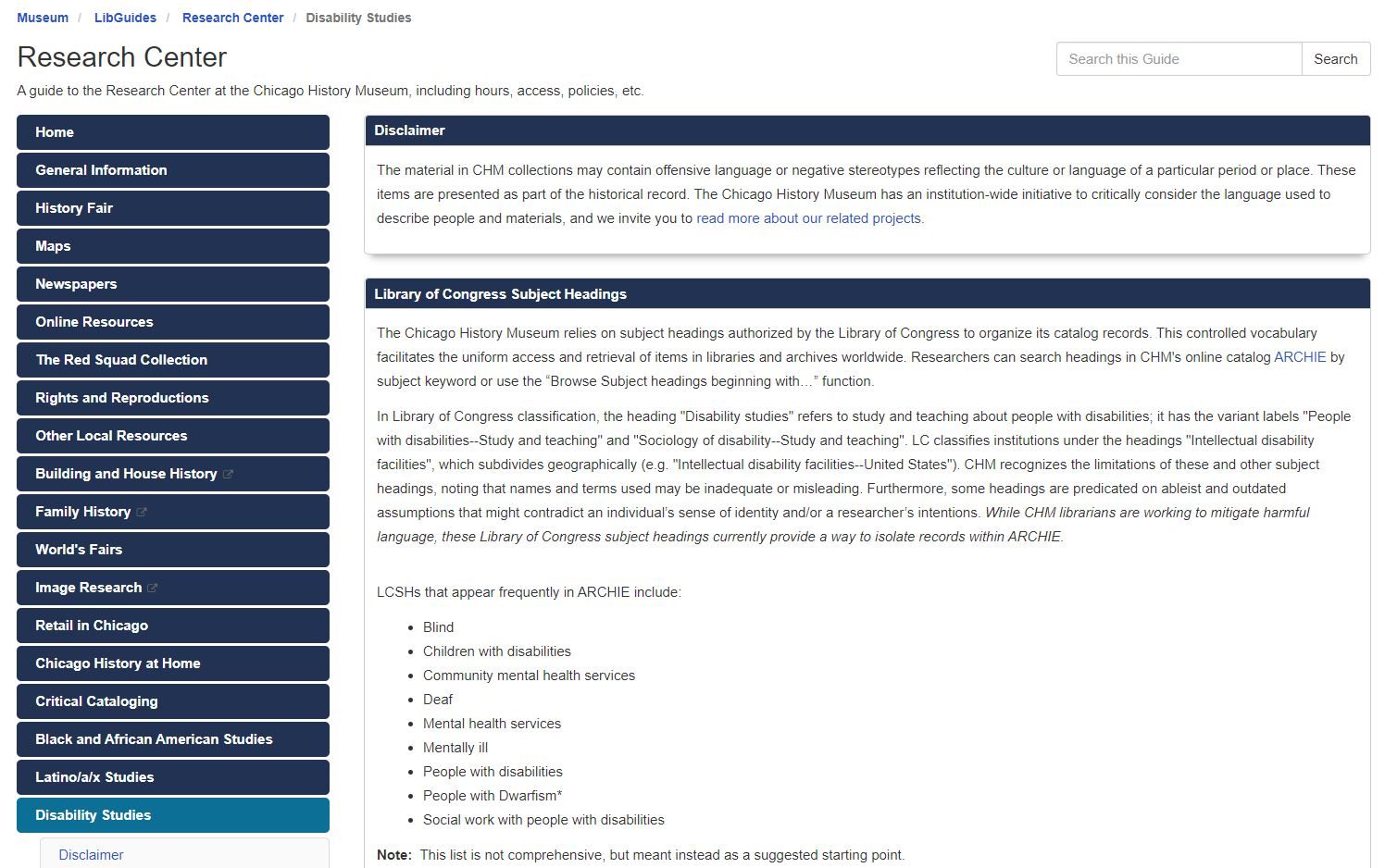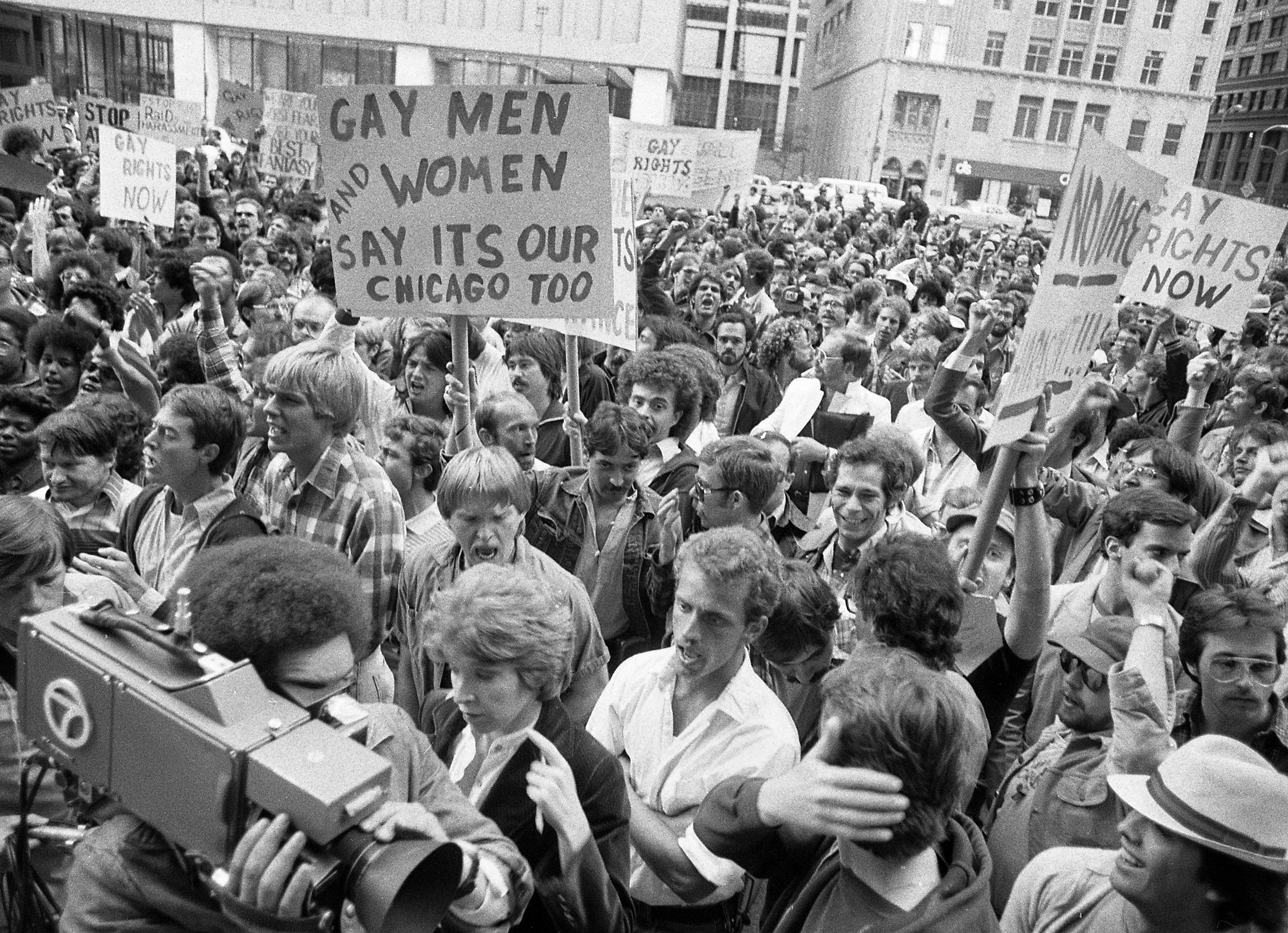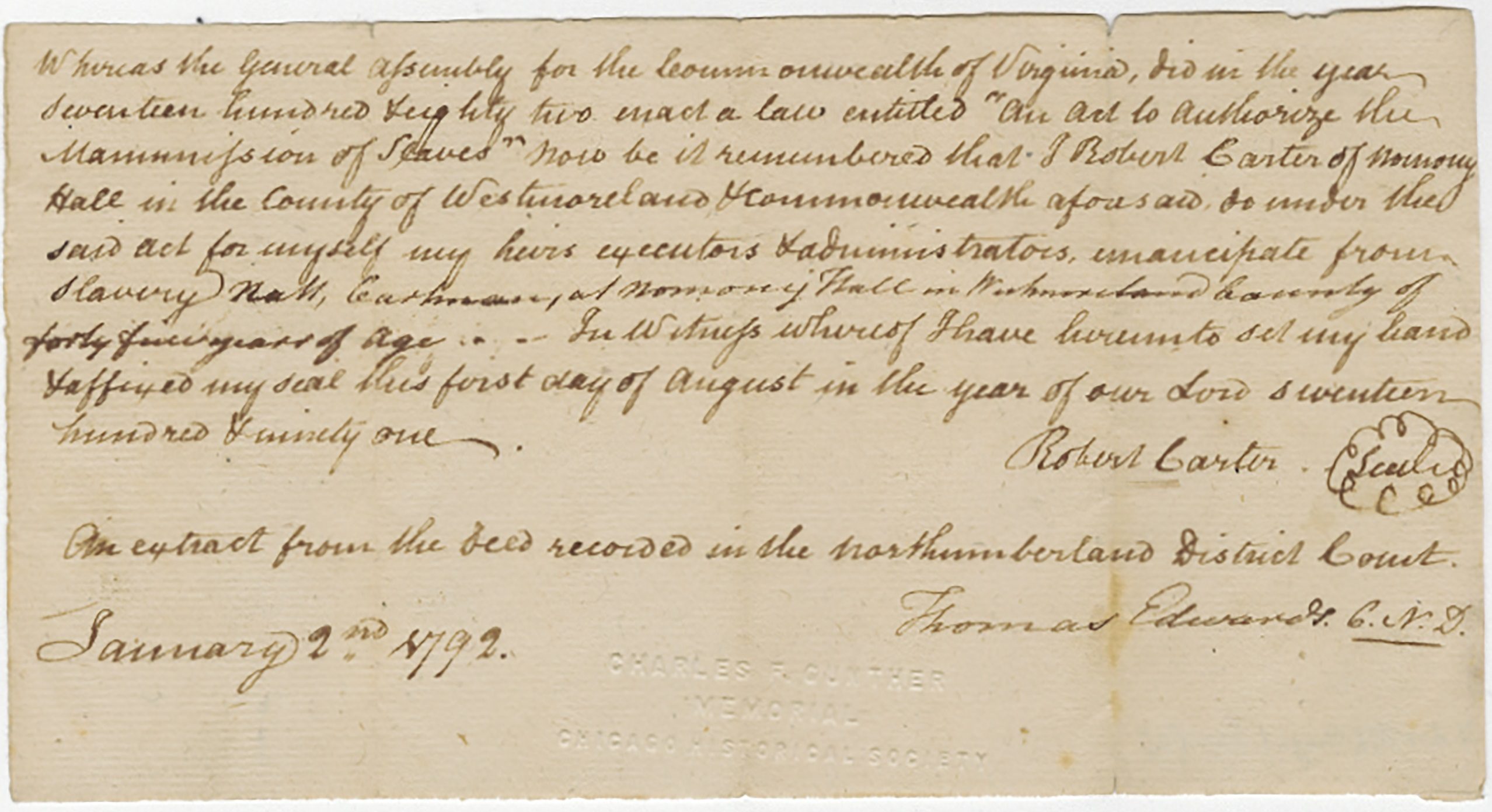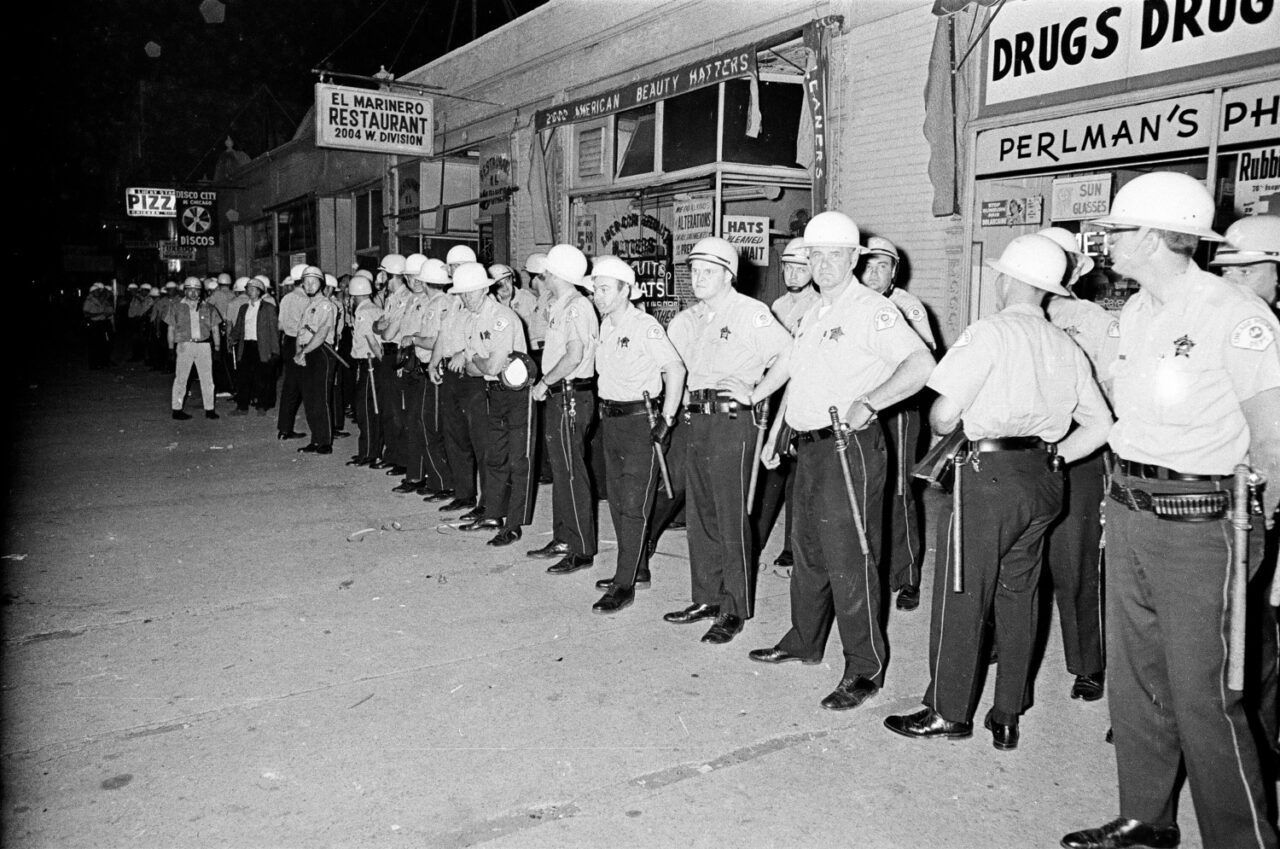CHM technical services librarian Elizabeth McKinley and cataloging and metadata librarian Gretchen Neidhardt outline how Research Center staff have been updating the language describing its holdings to reflect a viewpoint that is ethical, modern, and ultimately more humanizing.
For the past several months, Chicago History Museum librarians have been working behind the scenes to critically examine the language we use to describe our Research Center materials, including books, archives and manuscripts, and prints and photographs. Using the principles of critical cataloging, librarians have begun evaluating the keywords, subject headings, and summary descriptions used to identify items by and about marginalized and colonized groups, including African Americans, Indigenous peoples, and members of the disability community. This is only the start of an ongoing project that will work to address these and other group identities throughout the next several years.
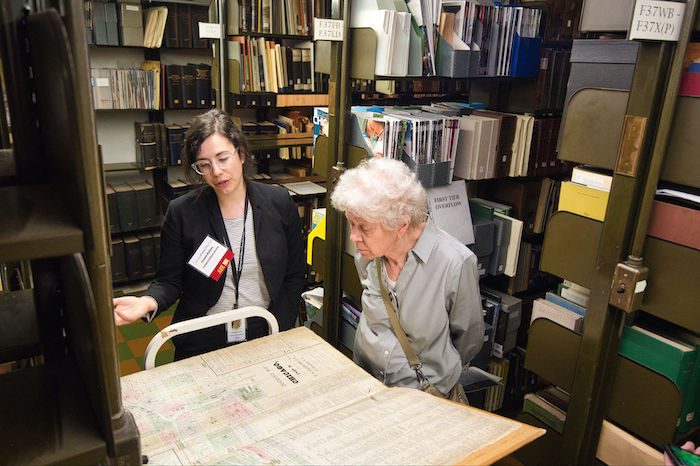
CHM librarian Elizabeth McKinley (left) in the stacks during the CHM Members’ Open House, June 2019. Photograph by J. Keener Photography
Community consensus has inspired most of our changes, including empowered person-first language recommended by members of those communities. Our first changes were regarding the subject heading for “noncitizens,” previously “illegal aliens.” In some ways, this was an easy change, since the Library of Congress had proposed new and approved language, though an act of Congress prevented it from becoming official. Despite this, CHM has joined dozens of institutions in changing their public subject headings to reflect this more humanizing terminology.
Another example of more extensive changes involved the language of slavery, using P. Gabrielle Foreman’s community-sourced guide “Writing about Slavery/Teaching about Slavery: This Might Help.” Many of our collections with documents pertaining to slavery had descriptions transcribed directly from the card catalog. These cards, written decades ago, often quoted directly from the item itself. As one can imagine, some of this language sounded quite harmful. Enslaved people were not empowered or centered in any way; they were written about as if they were property. This is one of our many harsh historical truths, and in no way would we want to alter the original texts that discuss the brutality of the enslaver-enslaved person relationship. Slavery is an irrefutable part of American history, and we cannot deny its horrific effects. However, in describing an item, we can choose a description that ensures a more ethical and modern viewpoint that validates the personhood of someone who was enslaved.
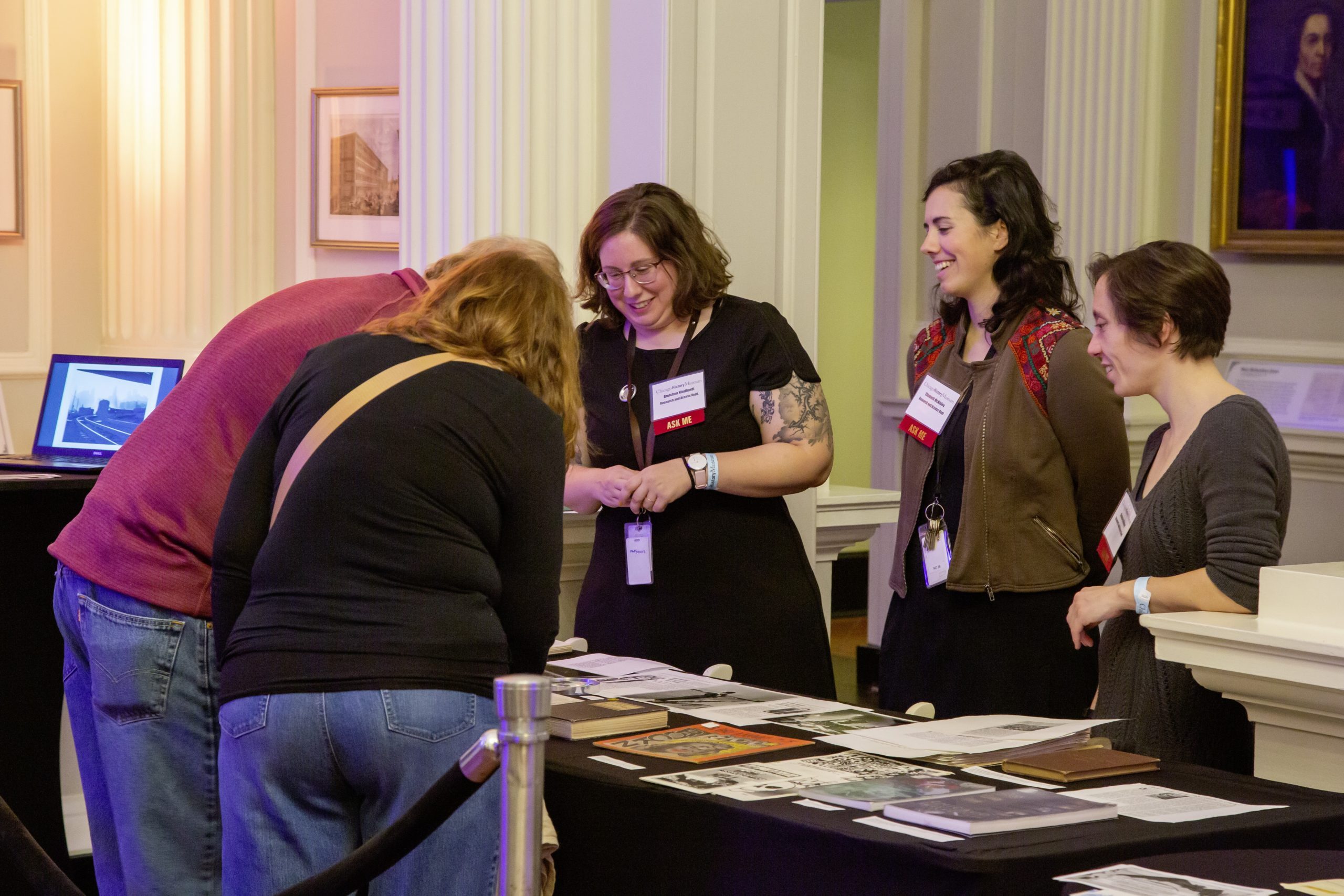
CHM librarians Gretchen Neidhardt (center) and Elizabeth McKinley (second from right) present a display of Research Center materials, October 2019.
As we continue to consider the historical ramifications of colonization and marginalization in our language, our intention is not to erase histories, but to balance preserving a record of historical and institutional bias along with mitigating harm for current and future researchers. The Museum intends to converse and collaborate with a wide range of community members and organizations. Currently, we are finishing up changes to our Black and African American-related items and starting updates for materials related to the Indigenous and disability communities. We will build in periodic evaluation so that we can more frequently address necessary language changes.
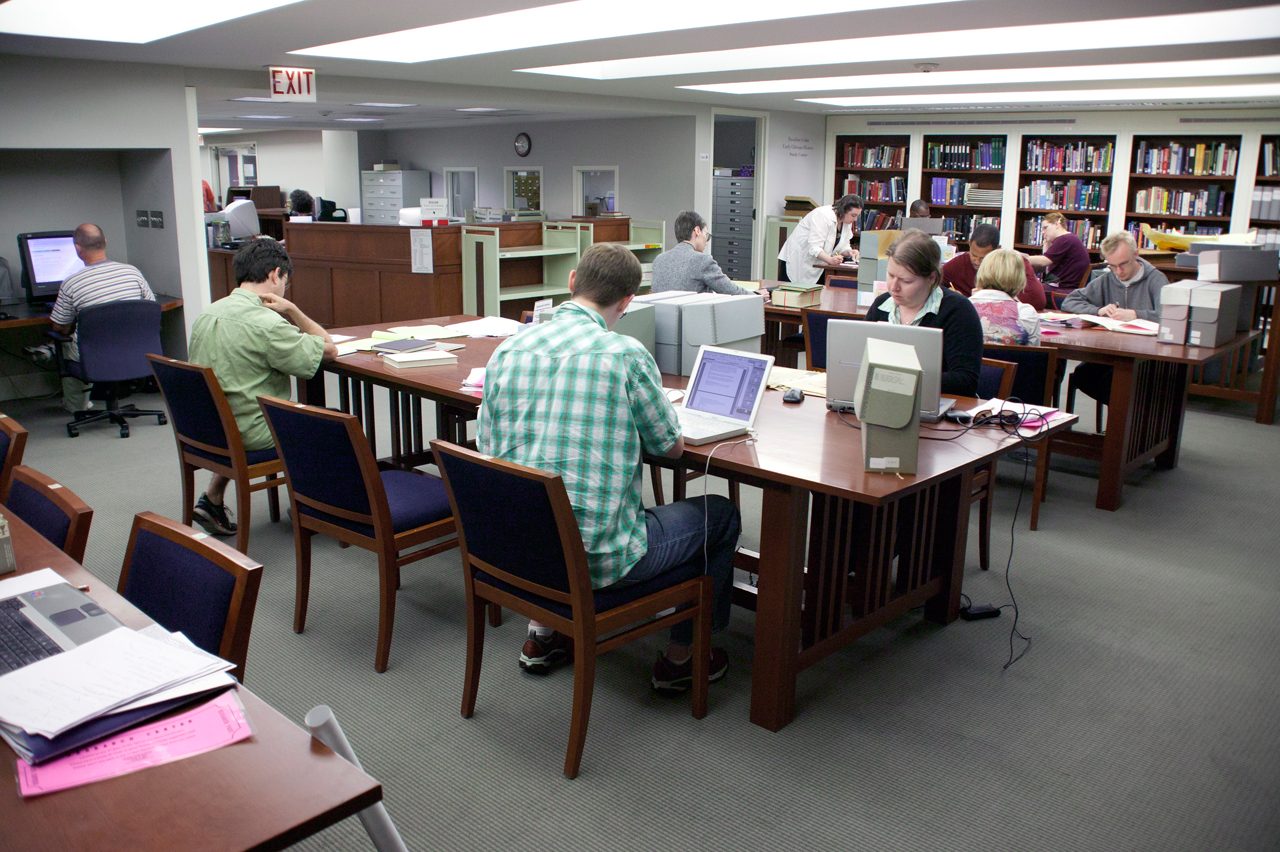
An undated photograph of Research Center patrons at work. Photograph by CHM staff
We also recognize that communities are not monoliths—various members will have different preferences and experiences. We understand that language is fluid and forever changing, and this discussion is meant to be an ongoing and open dialogue. Read more about our critical cataloging work here. We welcome your thoughts or comments at research@chicagohistory.org. We’re excited to see where it takes us and hope to continue keeping you informed along the way.
